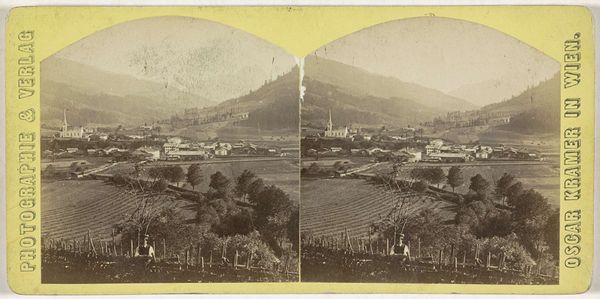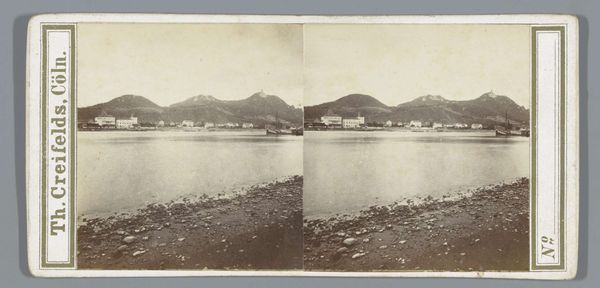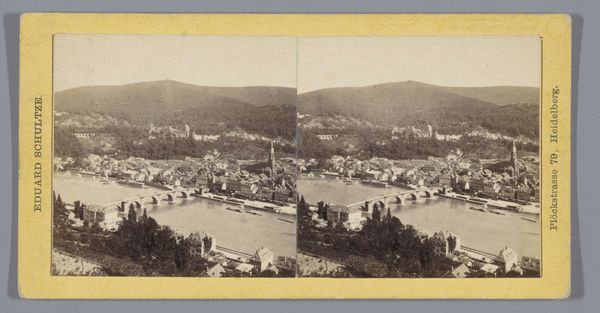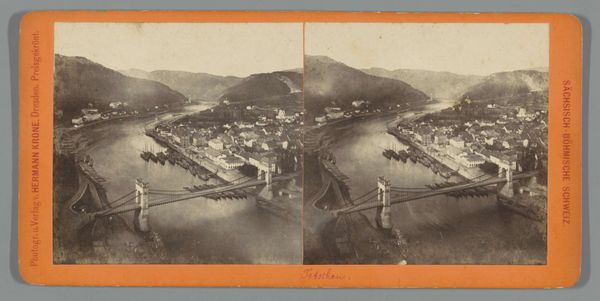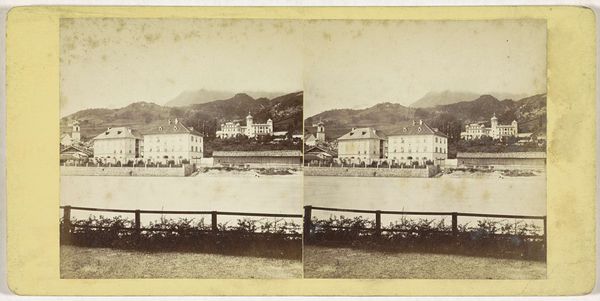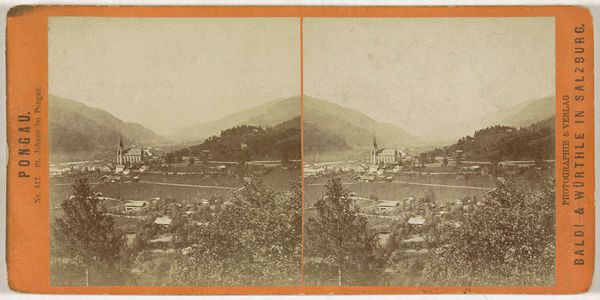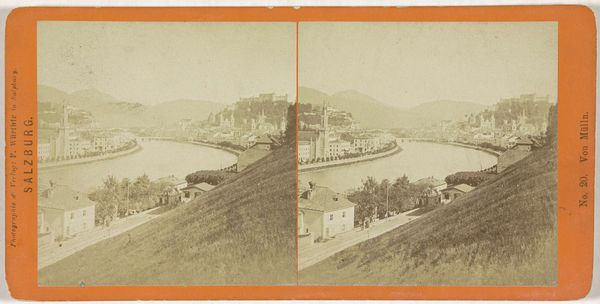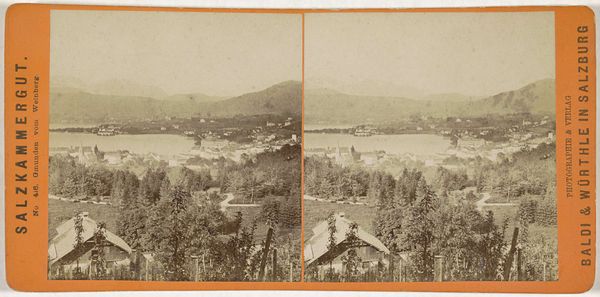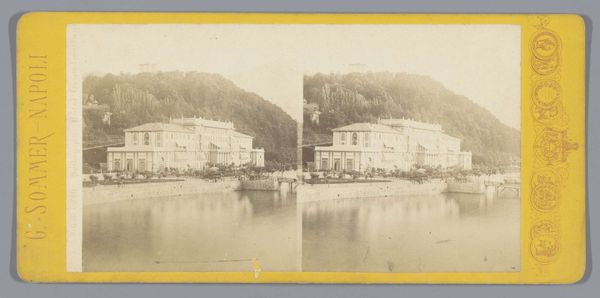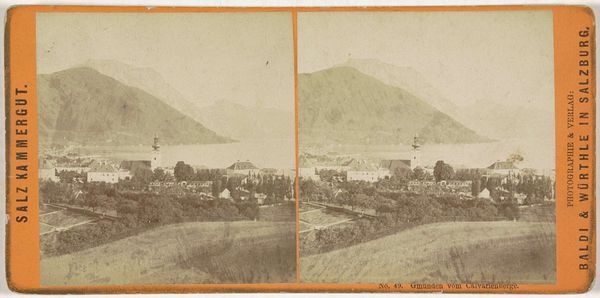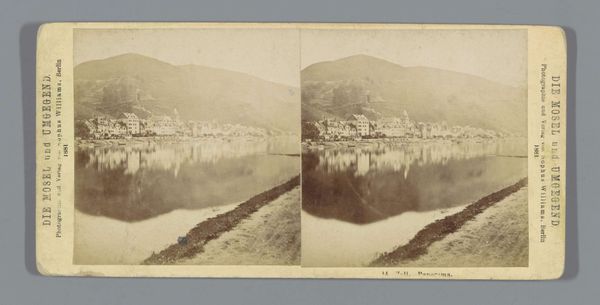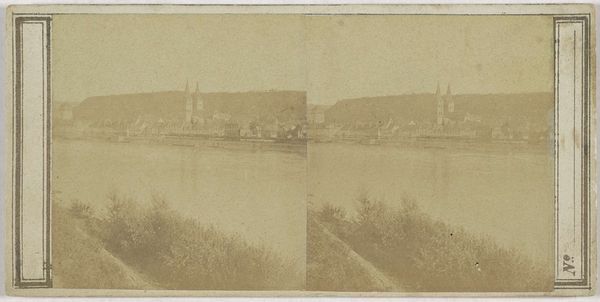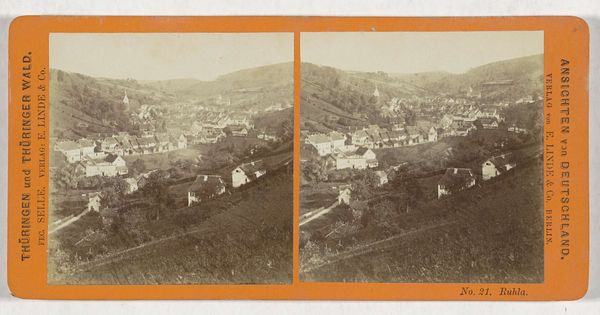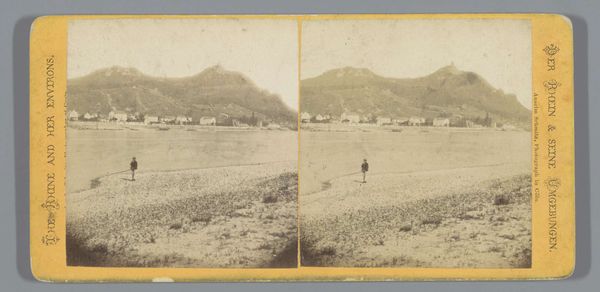
photography
#
16_19th-century
#
landscape
#
photography
#
cityscape
Dimensions: height 85 mm, width 173 mm
Copyright: Rijks Museum: Open Domain
This stereoscopic photograph captures a tranquil scene of the Pöstlingberg and the Danube near Linz, credited to Charles Gaudin. The composition is neatly structured into distinct horizontal bands of foreground, midground, and background which subtly evoke a sense of depth. Gaudin employs a range of sepia tones to render the scene. The visual syntax—from the placement of the village along the riverbank to the positioning of the hills—constructs a carefully ordered and almost self-contained world. This ordering isn't just about aesthetics, it is about creating a narrative through spatial relationships and visual cues. As a stereoscopic image, it invites the viewer to assemble two slightly different perspectives into a single, unified view. Consider, however, how this act of unifying also highlights the subtle shifts in perspective. It emphasizes that our perception isn't singular or fixed but constructed through difference. It makes you wonder, what truths might lie within those slight variations?
Comments
No comments
Be the first to comment and join the conversation on the ultimate creative platform.
